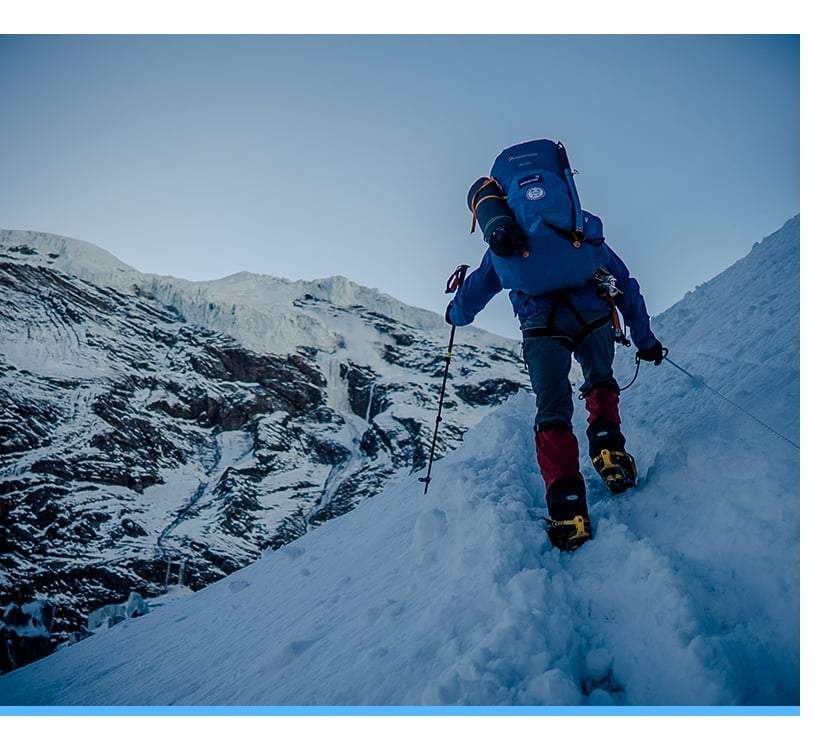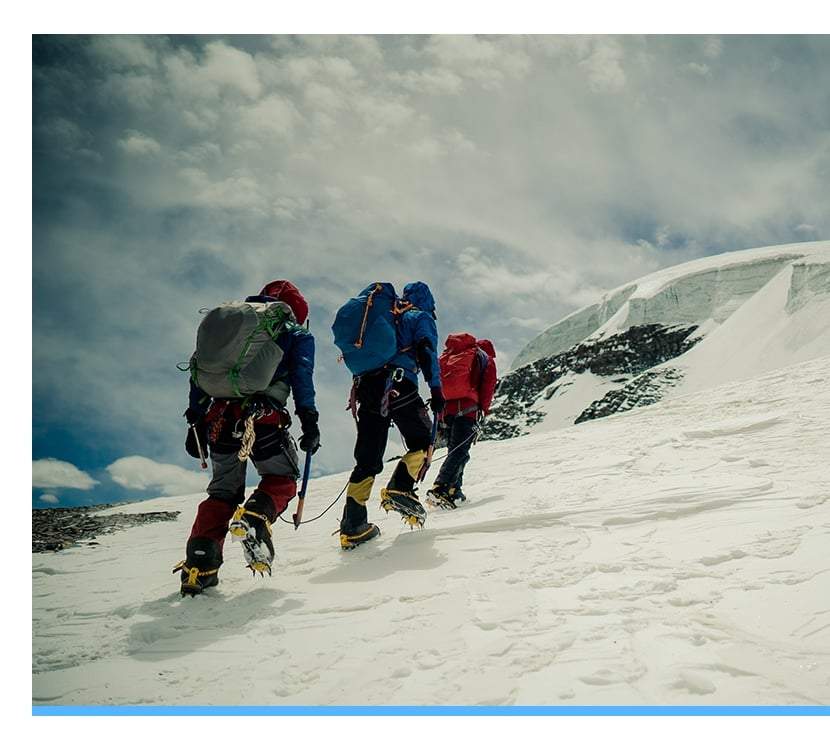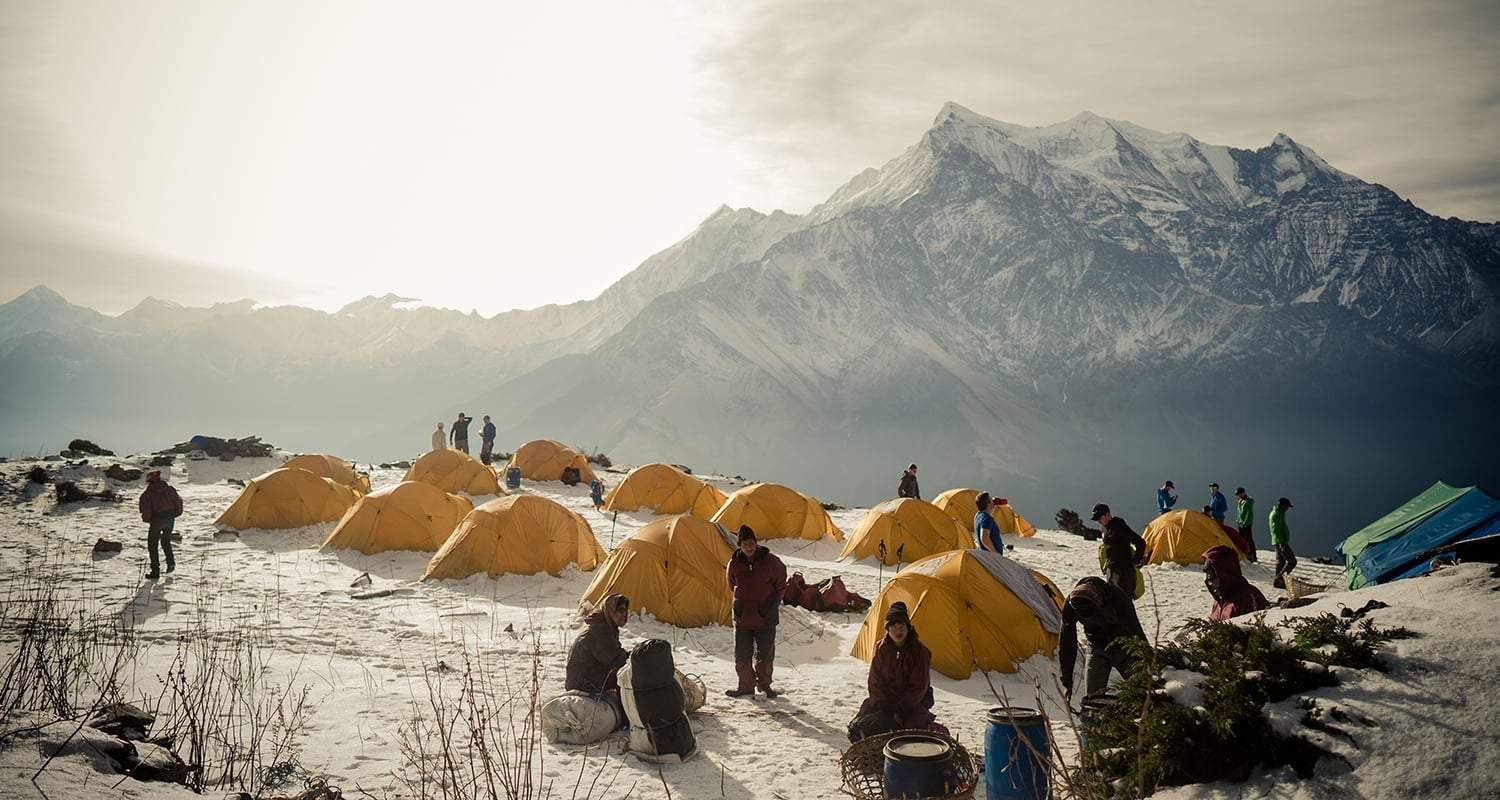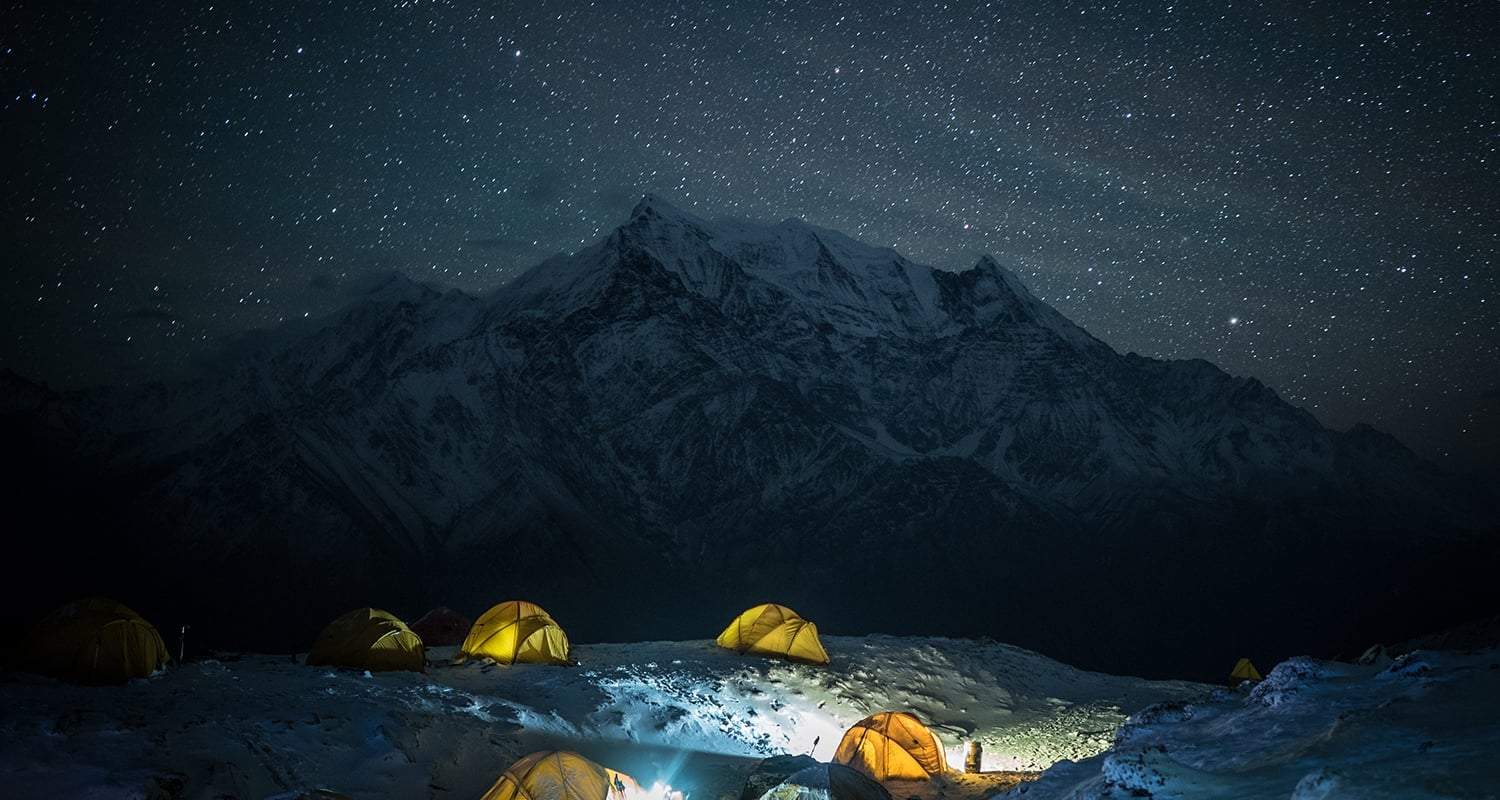Expedition leader and experienced mountaineer Surgeon Commander Adrian Mellor said: "This expedition brings together my passions of climbing high mountains and working to understand the physiological changes that enable us to do so. The military often embark on trips to Nepal but tend to climb the highest mountains in a heavy, siege style approach. We aim to change that. Working with Montane over the past 3 years on this project has allowed us to focus on getting the maximum versatility out of our kit for minimum weight. The team of 14 (including two Nepalese) who climb Dhaulagiri will have no supplementary oxygen, fix no ropes and use no high altitude porters, acclimatising and honing technique on two lower peaks prior to the summit attempt."
The expedition, has the support of influential patrons: His Royal Highness the Duke of York, Mark Lancaster MP, the Second Sea Lord, Air Member for Personnel, Commandant General Royal Marines and the Surgeon General acting as Patron for the scientific programme.
The main team making the gruelling 8167m ascent will be involved in two studies looking at the effect of an injection of iron on the body’s response to low oxygen levels and measuring heart rate and rhythm during the climb. In addition to its relevance to sport and exercise science, it is hoped that this data may provide insight into how the heart behaves in the face of disease or illness. The study involves the use of an innovative Medtronic Reveal device – a two-inch monitor which is implanted under the skin on the chest by a minor surgical procedure that stores and uploads data of each heart beat during the expedition by satellite link. This technique will allow the team to collect unique data from the heart during exercise at extreme altitude at low oxygen tensions, never previously achieved by a military study.

NEW APPROACH
The BSDMRE expedition will also signify a new approach within military mountaineering. Until now military attempts on such high mountains have been attempted “siege style”. This usually involves repeatedly carrying loads and establishing camps ever-higher on the mountain, often supplemented with bottled oxygen. Informed by recent research, BSDMRE will instead climb in a lightweight “alpine” style, acclimatising on Damphus and then Tukuche peaks (6060m and 6900m respectively) before making a fast and light weight ascent of Dhaulagiri without oxygen from 2 intermediate camps over a 5 day period.
Mountaineers of all abilities and ranks will take part in the expedition, promoting and developing the sport within the military and beyond. Trekking and development teams will explore trekking circuits and the smaller Tukuche Peak, whilst the main team will attempt the NE ridge of Dhaulagiri.

RESEARCH
Expedition leader Surgeon Commander Adrian Mellor said: “Until recently it has only been possible to collect heart rate data at rest due to the size and difficulty of obtaining a clear electrical recording from the heart at extreme altitudes. Now that we are able to do this, for the first time we will have accurate and sustained readings that will help us understand what happens to the heart rhythm during times of very low oxygen supply.
This and other studies in conjunction with Leeds Beckett and Oxford Universities will help us better prepare soldiers for deployment at high altitude and understand the body’s response to critical illness.” Robert Robson, CEO of the Royal Navy and Royal Marines Charity, said: “Medical research is vital for the future development of our Service personnel and we, as the Navy’s principal charity, have a mission to support projects like the Dhaulagiri Medical Research Expedition. The venture epitomises the ‘can-do’ attitude of our armed forces and will help improve training for personnel in the years to come.”
The research projects will be carried out on specific days during the trekking expedition around the Dhaulagiri circuit in Nepal in April 2016. All projects have been approved by the Royal Air Force Scientific Advisory Committee and the Ministry of Defence Research Ethics Committee and rely on the voluntary participation of those taking part in the expedition.
The following research projects are being undertaken on the expedition. Please click on the links for more information.
Study 1: Acclimation and acclimatisation: The effects of exercise under normobaric hypoxic conditions
Study 2: Biomechanical changes in walking and balance at altitude
Study 3: Application of apnoeic training and physiological adaptations to altitude
Study 4: Appetite responses during high altitude expeditions
Study 5: Monitoring of heart rate and rhythm during the ascent to extreme altitude
Study 6: The investigation of the adaptation of the heart and lungs to high altitude
Study 7: The use of brain natriuretic hormone as a marker for high altitude illness








